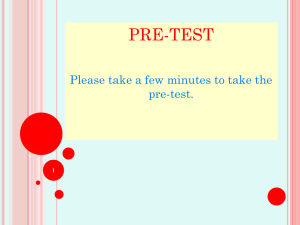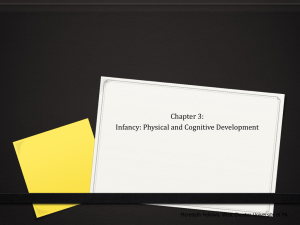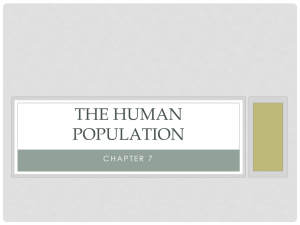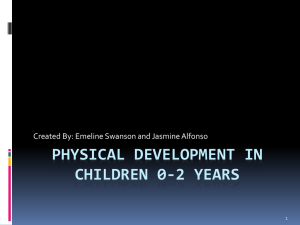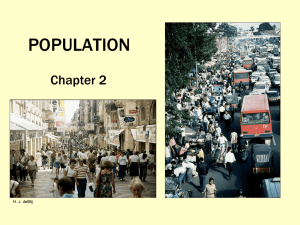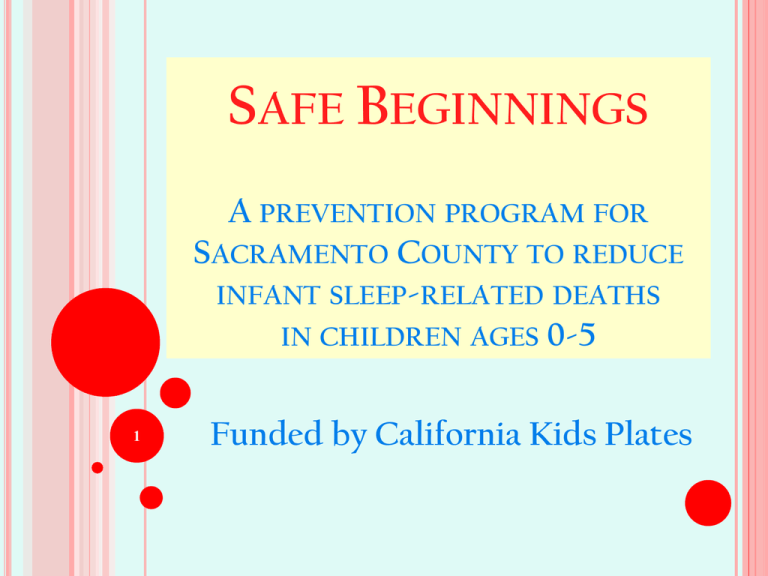
SAFE BEGINNINGS
A PREVENTION PROGRAM FOR
SACRAMENTO COUNTY TO REDUCE
INFANT SLEEP-RELATED DEATHS
IN CHILDREN AGES 0-5
1
Funded by California Kids Plates
CALIFORNIA KID’S PLATES FUNDING
In 1992, the California legislature passed a bill allowing
for the sale of Kids' Plates motor vehicle license plates
and the creation of the Child Health and Safety Fund.
Revenue from the sale of Kids' Plates goes into the Child
Health and Safety Fund and is appropriated to support
three child safety issues in California:
1.
2.
3.
unintentional childhood injury prevention,
child abuse prevention,
child care licensing and inspection activities.
2
SAFE BEGINNINGS COLLABORATIVE
Joint effort between the Child Abuse Prevention Council
of Sacramento (CAPC) and Safe Kids Greater
Sacramento
Ensures each child has a “safe beginning.”
Partnership brings together the childhood injury and
child maltreatment prevention fields, to protect children
from injury and death.
3
SACRAMENTO COUNTY SAFE BEGINNINGS
COLLABORATIVE PARTNERS
Sacramento County Hospital systems:
Kaiser Permanente, Dignity Health Care Systems (formerly
Mercy), Sutter Medical Center Sacramento and UC-Davis
Medical Center
Sacramento County Department of Health and Human Services:
Child Protective Services, Public Health, Communication and
Media Officer, Women Infants and Children Program (WIC),
Child Action, Inc.
Child Abuse Prevention Council of Sacramento
Safe Kids Greater Sacramento
Sacramento Metro Fire, Cosumnes Fire
Child Death Review Team (CDRT)
Sacramento County Building Inspection Division
Sacramento County Coroner
4
SACRAMENTO COUNTY
SAFE BEGINNINGS COLLABORATIVE PROCESS
How Safe Beginnings was developed:
Reviewed Sacramento, California and nationwide infant
sleep-related death data
Surveyed Sacramento County service providers (135
responses)
Conducted parent focus groups (276 Parents)
Researched best/promising practice prevention program
models
Developed SBC Infant Safe Sleeping Program utilizing
the above
5
SAFE BEGINNINGS
SACRAMENTO COUNTY SERVICE PROVIDERS
QUESTIONNAIRE RESPONSES
What do you think are the major risk factors for infant
sleep-related deaths?
69% Co-sleeping with adults and/or siblings
58% Infants sleeping somewhere other than a crib
44% of parents put infant to sleep on tummy
6
SAFE BEGINNINGS COLLABORATIVE
PARENT FOCUS GROUP RESPONSES
What do you know about infant sleep-related deaths?
Think of infant sleep-related deaths as a completely natural
phenomenon.
Think of SIDS and believe parents have little ability to prevent
these deaths
Agreed Infant sleep-related deaths are a major problem
Heard of infant sleep-related deaths on TV, but not within their
families/communities
7
SAFE BEGINNINGS COLLABORATIVE
Sacramento County service providers and parent focus group
participants overwhelmingly agreed:
An education campaign to raise awareness of the importance of
infants (particularly those 6 months of age and younger)
sleeping in safe environments was needed for Sacramento
County.
Information delivered by:
Birthing Hospitals
Health Care Professionals
Child Care Providers
Family Resource Centers
Community Programs
8
SAFE BEGINNINGS
SAFE BEGINNINGS GOAL
Decrease the number of infant sleep-related injuries
and deaths in targeted Sacramento County
communities.
Program elements to reduce infant sleep-related deaths
include:
Educate service providers
Educate parents and caregivers
Develop and Implement media campaign (print, TV, radio,
video)
9
SACRAMENTO COUNTY SAFE BEGINNINGS
Infant Safe Sleeping
Training for Service Providers
10
LEARNING OBJECTIVES
After training, participants will be able to:
Define infant sleep-related deaths terms
Learn the American Academy of Pediatrics established risk factors
for infant sleep-related deaths
Know Sacramento County statistics on infant sleep-related deaths
Become familiar with the AAP 2011 recommendations for Infant
Safe-Sleeping
Learn the ABC’s of infant safe sleeping
Identify resources for additional information on infant safe sleeping
11
INFANT SLEEP-RELATED DEATHS:
A QUICK AND SILENT KILLER
Infant sleep-related deaths are the leading cause of death
for babies one month to one year of age.
Most babies that have an infant sleep-related death appear
to be healthy prior to death.
Infant sleep-related deaths occur in all socio-economic,
racial and ethnic groups. African American and Native
American babies are 2-3 times more likely than Caucasian
babies to have an infant sleep-related death.
12
www.firstcandle.org
INFANT SLEEP-RELATED DEATHS
DEFINITIONS
SIDS – The sudden death of an infant under
one year of age, which remains unexplained
following an investigation of the case, including
the performance of a complete autopsy and
review of the clinical history.
Critical
Development
Period (2-4
months)
Vulnerable
Infant
SIDS
Outside
Stressors
13
INFANT SLEEP-RELATED DEATHS
DEFINITIONS
SUIDS – The sudden unexpected/unexplained infant death (SUID)
applies to the death of an infant less than one year of age, in which
investigation, autopsy, medical history review, and appropriate
laboratory testing fails to identify a specific cause of death.
SUIDS includes cases that meet the definition of Sudden Infant Death
Syndrome (SIDS). If there are external or exogenous stressors [risk
factors] that a medical examiner would like to incorporate on a death
certificate, such as:
co-sleeping or bed sharing, they may be added to the cause of death, such as in
the following way: Sudden unexplained (or unexpected) infant death while bed-sharing.
14
INFANT SLEEP-RELATED DEATHS
DEFINITIONS
Undetermined Manner – death in which the cause or manner
may not be medically identifiable. In this category the manner of death
may not be determined due to uncertainty regarding how the fatal
condition developed or was inflicted.
Deaths that had insufficient information to assign a manner included in
this category are:
infant sleep-related deaths where there is not enough evidence to determine
whether the death was caused by parental overlay, SIDS or SUIDS.
15
AAP ESTABLISHED RISK FACTORS
Sleep Environment Risk
Factors:
Soft sleep surface (adult bed,
couch or pillow)
Extra items in the crib:
bumpers, quilts, blankets, toys
Co-sleeping
Sleep position-on stomach or
side
Overheating
Environmental tobacco smoke
Other Risk Factors
Maternal smoking during
pregnancy
Young maternal age
Late or no prenatal care
Maternal drinking and /or
drug use
Male sex
African American
Native American
SIDS and Other Sleep-Related Infant Deaths: Expansion of Recommendations for a Safe Infant
Sleeping Environment; Pediatrics Journal, October 2011
16
BABIES WHO….
• …sleep in an adult bed have a 40 times greater risk of SIDS.
• …sleep on their tummies have a 5 times greater risk of SIDS.
• ……sleep on soft bedding have a 5 times greater risk of SIDS.
• …sleep on their tummies on top of soft bedding have a 21 times
greater risk of SIDS.
• .... breath secondhand smoke have a 2.5 times greater risk of SIDS
Babies of mothers who smoke during pregnancy…
have a 3 times greater risk of SIDS.
www.cjsids.org
17
SACRAMENTO COUNTY INFANT SLEEP-RELATED DEATHS
Sacramento County Resident
Infant Sleep-Related Deaths
1990-2009
(Kernel Density Distribution)
2,111 infants died
between 1990-2009.
20% (420) of these
were infant sleeprelated deaths.
18
CDRT 20 Year Report
SACRAMENTO COUNTY INFANT SLEEP-RELATED DEATHS
95 Infant Sleep Related Deaths were recorded in Sacramento
County from 2007-2011.
94% had at least one known infant sleep environmental risk
factor:
78% were NOT sleeping in a crib or bassinet (unsafe sleep
environment)
65% were sleeping on an adult bed or couch
55% were co-sleeping with an adult
36% were not put on their backs to sleep
19
SACRAMENTO COUNTY INFANT SLEEP-RELATED DEATHS
Infant Sleep-Related Deaths by Year (n=449)
Sacramento County Resident Child Deaths
1990-2011
35
30
28
29
28
26
25
24
# Child Deaths
25
21
20
21
18
20
24
21
19
22
21
19
18
16
15
13
11
12
13
10
5
Targeted Educational Campaigns
0
1990 1991 1992 1993 1994 1995 1996 1997 1998 1999 2000 2001 2002 2003 2004 2005 2006 2007 2008 2009 2010 2011
20
INFANT SAFE SLEEPING
Recent research from the American Academy of Pediatrics
indicates that infant sleep-related deaths can be prevented
by implementing safe sleeping techniques for every nap and
every night.
Recommendations for sleep position and environment
should be used consistently for infants up to 1 year of age.
21
AMERICAN ACADEMY OF PEDIATRICS
INFANT SAFE SLEEPING 2011 RECOMMENDATIONS
Back to sleep always, for every sleep
22
AMERICAN ACADEMY OF PEDIATRICS
INFANT SAFE SLEEPING 2011 RECOMMENDATIONS
Firm Sleep Surface
Keep soft objects out
of cribs
Avoid overheating-no
more than one layer
more than an adult
Infant clothing that is
designed to keep
infants warm without
possible head covering
or entrapment (such
as loose blankets)
23
AMERICAN ACADEMY OF PEDIATRICS
INFANT SAFE SLEEPING 2011 RECOMMENDATIONS
Room-sharing without bed-sharing is recommended.
24
AMERICAN ACADEMY OF PEDIATRICS
INFANT SAFE SLEEPING 2011 RECOMMENDATIONS
Supervised tummy-time while awake…
…beginning at as early of an age as possible, to
promote motor development.
25
AMERICAN ACADEMY OF PEDIATRICS
INFANT SAFE SLEEPING 2011 RECOMMENDATIONS
Breastfeeding lowers the risk for SIDS.
Put your baby back into his or her own crib to sleep after feeding.
26
AMERICAN ACADEMY OF PEDIATRICS
INFANT SAFE SLEEPING 2011 RECOMMENDATIONS
Consider offering a clean, dry pacifier at
nap and bedtime, but do not force it.
If breastfeeding, wait 3-4 weeks to
introduce the pacifier until the baby has a
good latch.
27
SACRAMENTO COUNTY
ABC’S OF INFANT SAFE SLEEPING
A for Alone
Babies should always sleep alone in their own crib or
bassinette.
Co-sleeping with other children or even parents can be
dangerous – others in bed with your baby can
accidentally suffocate them by simply lying too close to
their mouth or nose, or by rolling onto them while
asleep.
Your baby should not sleep with stuffed animals,
pillows or blankets — these soft items could
accidentally fall over your baby’s face and suffocate
them.
A blanket sleeper or sleep sack is enough to keep your
baby comfortable.
28
SACRAMENTO COUNTY –
ABC’S OF INFANT SAFE SLEEPING
B for Back
Babies who sleep on their backs are much less likely to die of
infant sleep-related deaths.
According to doctors, “back sleeping” will not increase a baby’s
risk of choking.
Many of our own mothers and grandmothers were taught to put
a baby on their tummy to sleep — so you’ll need to gently
remind them that to prevent infant sleep-related deaths, it’s
“back to sleep.”
29
SACRAMENTO COUNTY –
ABC’S OF INFANT SAFE SLEEPING
C for Crib
Cribs and bassinets are the safest places for
babies to sleep – as long as you keep them safe!
To make breastfeeding easier keep a crib or
bassinet next to your bed and always put your
baby back to sleep afterwards.
Cribs should be free of pillows, bumpers,
stuffed toys, extra blankets or anything that
could accidentally cover your babies face and
suffocate them. A blanket sleeper or sleep sack
is sufficient.
Make sure that the crib mattress is firm and fits
snuggly with no space between the mattress
and the side of the crib, where the baby could
become trapped.
Unlike firm crib mattresses, today’s adult beds
are soft and can cause babies to suffocate.
30
ACCESSING RESOURCES
Child Abuse Prevention Center
www.thecapcenter.org
First Candle
www.firstcandle.org
Consumer Product Safety Commission
www.cpsc.gov
American Academy of Pediatrics
www.aap.org
Juvenile Products Manufacturers Association
www.jpma.org
Halo Sleep Sack
www.halosleep.com
31
SACRAMENTO COUNTY
FAMILY RESOURCE CENTERS
La Familia Counseling Center
5523 34th Street
Sacramento, CA 95820
(916) 452-3601
The Effort Resource Center
6015 Watt Avenue, Suite 2
North Highlands, CA 95660
(916) 679-3925
North Sacramento Family Resource Center
1217 Del Paso Blvd.
Sacramento, CA 95815
(916) 679-3743
The Firehouse - Mutual Assistance Network
810 Grand Avenue
Sacramento, CA 95838
(916) 567-9567
Folsom Cordova Community Partnership
10455 Investment Circle
Rancho Cordova, CA 95670
(916) 361-8684
Meadowview Family Resource Center
2251 Florin Road, Suite 158
Sacramento, CA 95822
(916) 394-6300
River Oak Family Resource Center
4322 4th Avenue
Sacramento, CA 95817
(916) 244-5800
Valley Hi Family Resource Center
7000 Franklin Blvd., Suite 820
Sacramento, CA 95823
(916) 290-8281
32

